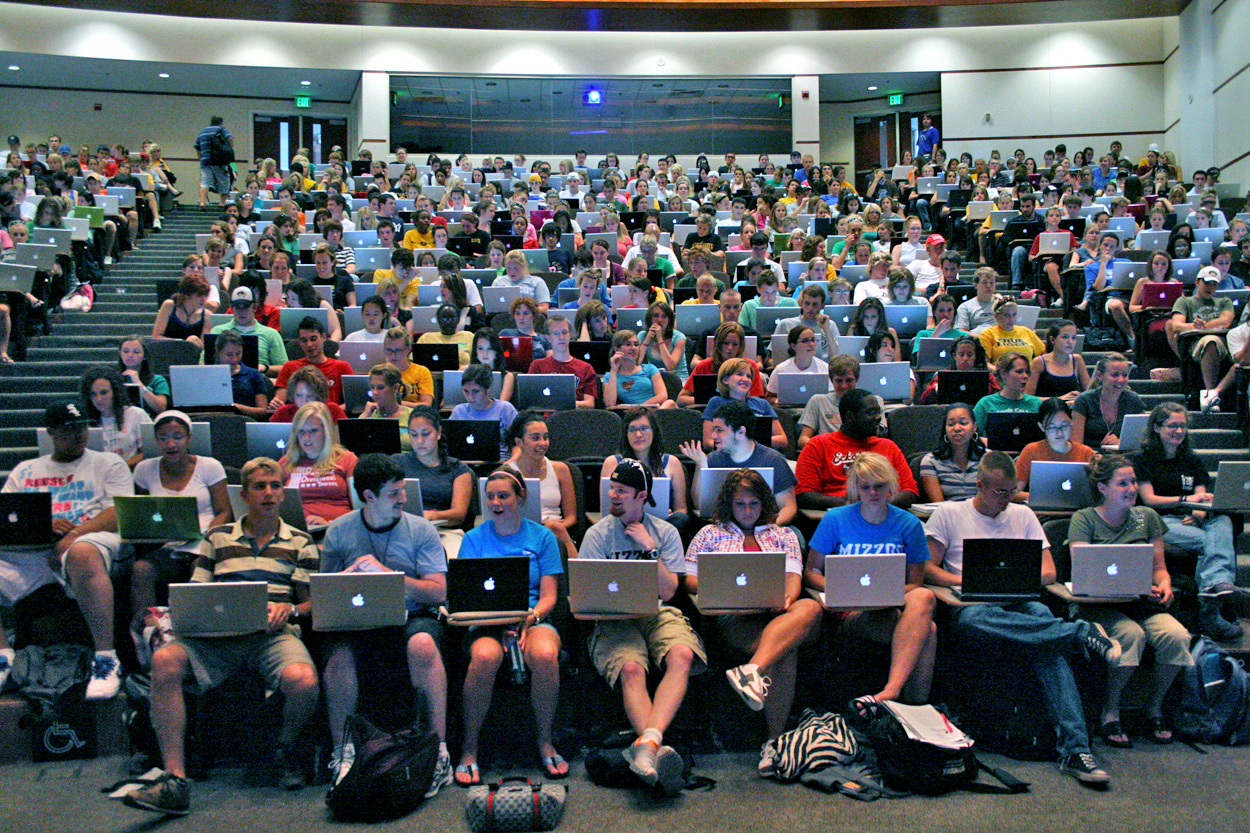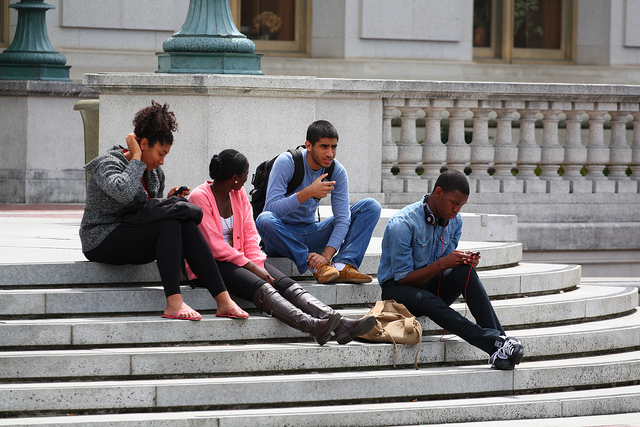When the travel ban put in place by the administration of U.S. President Trump was announced in late January I was devastated. I couldn’t understand what was happening, nor how best to respond. I did the only thing I could think of at the time, which was to ask some questions on social media, which led to a suggestion for something to do by someone else at UBC, which led to an effort to gather people from UBC together into an email list to talk about possible responses by us as individuals and also by the university community.
I was heartened to see that UBC President Santa Ono put together a task force about the travel ban very quickly, and as they were meeting I was discussing with people on our hastily-put-together email list ideas of what we might do. As the suggestions started coming in I kept track of them all and eventually put them on a shared doc in the form of a letter. I was going to send it to the task force (second announcement about the task force is here) but then by the time I and a few other people finalized the letter and who wanted to sign it, we learned that the task force had given a new and final update.
We decided to send our letter anyway, and addressed it to President Ono only instead of the task force (which I believe is now finished, given the latest update being called a “final” one). We had some further thoughts for consideration and decided they were still worth sharing.
I want to emphasize that we appreciate the work of the President and the Task Force so far, and are offering further suggestions we would like the university to consider. I fear that the issues we discuss in the letter are likely to get worse, not better, as the weeks and months go on.
I share below a copy of the letter we sent to the President’s office today. I encourage others to share their thoughts in the comments below, and if you want to join our email list of UBC students, faculty and staff who are concerned about refugees, immigration, travel, Islamophobia, Anti-Semitism, hate and violence directed towards indigenous and LGBTQIA communities, please email me: c.hendricks@ubc.ca.
This is a long list of issues on the table, and I expect I have left out some groups and how they are being affected by recent events (please let me know!) but sadly I think they are connected. And all I can think of to do, again, is to talk with other people who care and see what we can do, given what we know and who we are and where we are right now. And to listen, mostly: to listen to those who are most affected.
February 20, 2017
Dear President Ono,
We write as members of the UBC community who are very concerned about the recent travel ban in the U.S. that affected so many people around the world, including at UBC, and about the violence committed against Muslims in Québec. Though the original travel ban is no longer in force, the U.S. President has said there will be a new one very soon that will be more carefully drafted so as to be more enforceable. Further, we fear that expressions of hatred as well as acts of violence against Muslims, Jews, and other marginalized groups that we are seeing in several parts of the world at the moment are likely to continue or get worse.
Recently we have also seen evidence of the new administration in the U.S. expending greater efforts to find and deport those who are in the country illegally, which could include students at institutions of higher education or their families. We are concerned about the possible disruption to such students and their families, not just in their studies but in their lives.
We were happy to see you respond so quickly to the travel ban in the U.S. by making a statement expressing deep concern and setting up a task force right away with funding to support it. We appreciate your efforts regarding this important issue and would like to support them.
We are writing with further suggestions of what we think might be useful for the university to do. We would also like to emphasize that the situation with the travel ban is very fluid and could change quickly, and some of the suggestions below are things that could be considered for the longer term even if the travel ban is not reinstated right away.
Actions that could be taken regardless of the status of the travel ban in the U.S.
Workshops, teach-ins, discussions at UBC
We would like to see more events related to racism, Islamophobia, Anti-Semitism, anti-LGBTQ violence, refugees, human rights and immigration at the university in the near future. First Nations and indigenous communities also continue to experience systemic inequalities, racism and violence, problems which are related to those we are raising here. There are quite a few people at UBC with a great deal of knowledge and experience with such issues, amongst students, staff and faculty. It would be helpful if there were a way for people to communicate and coordinate events and workshops around these issues, to avoid duplication and to be able to advertise them in one place.
We realize that such events are often organized by units at UBC rather than out of the central administration, but one thing that might facilitate more such events is to create a fund that could be used by units who wish to bring in speakers.
This is also a longer-term effort that could be undertaken in the portfolio of the Associate VP, Equity and Inclusion. As noted above, rhetoric, hatred and violence around Islam, Judaism, the LGBTQIA community, immigration and refugees is on the rise in many parts of the world, and this is a problem we need to be thinking about in the long term rather than only as a response to the recent travel ban.
World University Service of Canada Student Refugee program
Discussions with WUSC are currently underway to explore how best the university and Faculty can further support this program. We encourage the University (and/or the task force) to continue working closely with WUSC and consider the recommendations coming from this student-led group.
Academic conferences
A number of professional associations are debating whether to possibly move their conferences or meetings outside of the U.S. We would like to ask the task force to consider how UBC might support such efforts, perhaps by providing a reduced price for use of rooms or catering. We recognize that many association meetings in Vancouver are held in hotels downtown, but for smaller meetings that could use UBC facilities we would like the university consider how to support moving such meetings from the U.S. to here.
There are also a number of academics who are choosing not to go to the U.S. at this time, and may therefore cancelling their presentations at conferences. If this is done out of conscientious objection, faculty members could note this on their CV’s and perhaps their cancelled presentations could still count for merit, tenure and promotion as if they had presented in person.
Actions specifically related to a travel ban, or to other reasons why students and scholars may not want to or be able to pursue their studies or scholarly work in the U.S.
Resource web page
It would be helpful to provide an up-to-date page with information about the current status of this or a future travel ban/travel or immigration concern in the U.S., such as the one at the University of Alberta: https://www.ualberta.ca/travel-ban-information This page could contain continually updated information as well as resources and people to contact with questions and concerns. It could also be a place to list events at UBC related to travel and immigration issues as well as those related to combating racism, Islamophobia, Anti-Semitism, and the like. Finally, it could contain information and guidelines around data protection and privacy for members of the UBC community who do travel to the US (in light of travellers being asked for device and social media passwords).
Students
- A number of Canadian universities have waived application fees for students affected by the ban:
- Scholarships: It would be helpful if the university could fundraise for scholarships for those affected by this or a future travel ban.
Researchers and professors
Some may not be able to, or may not want to risk, going to the U.S. at this time though they may have been planning to do so (or are not able to return to their home institutions). We think it would be helpful if UBC could find ways to work with departments and research centres to provide temporary placement as visiting scholars. We recognize that this is complicated, of course, by the need for housing for such scholars as well as possibly their partners and families.
This letter has been circulated amongst an email list of faculty, staff and students who have come together around a desire to see the university respond in as effective and helpful way as possible to recent events. However, we are only a small number of people. We encourage the task force to consult widely with various people on campus, and in particular with those most affected by the travel ban, concerns around refugees and immigration, and Islamophobia, to ensure that the university’s response addresses what they see as the most pressing needs. We offer the list of things above as suggestions from a group of people who are concerned, some of whom have been personally affected, but who are nevertheless only part of the picture. We stress the importance of also consulting directly with those whose needs are most pressing at this time.
Sincerely,
Christina Hendricks, Professor of Teaching, Philosophy, UBC
Afsaneh Sharif, Faculty Liaison, Center for Teaching, Learning and Technology
(Personal viewpoints and do not reflect CTLT)
Jenny Peterson, Political Science, UBC
Tammy Yasrobi, Manager, UBC IT
(Personal viewpoints and do not reflect UBC IT as an organization)
Amy Scott Metcalfe, Educational Studies, UBC
UPDATE: We received a response to our letter from Pam Ratner, Vice-Provost & Associate Vice-President, International pro tem at UBC, which I put into a new post because this one is already quite long.


